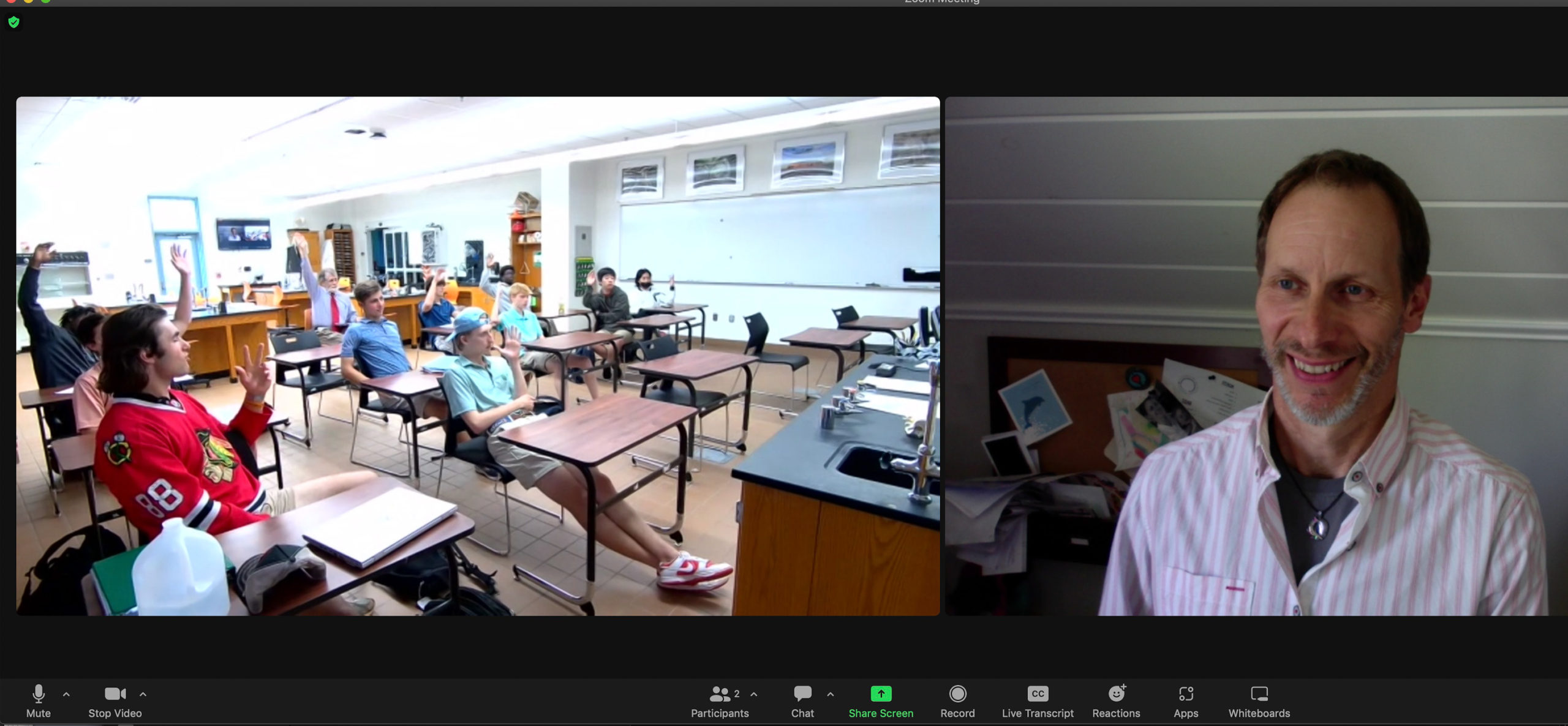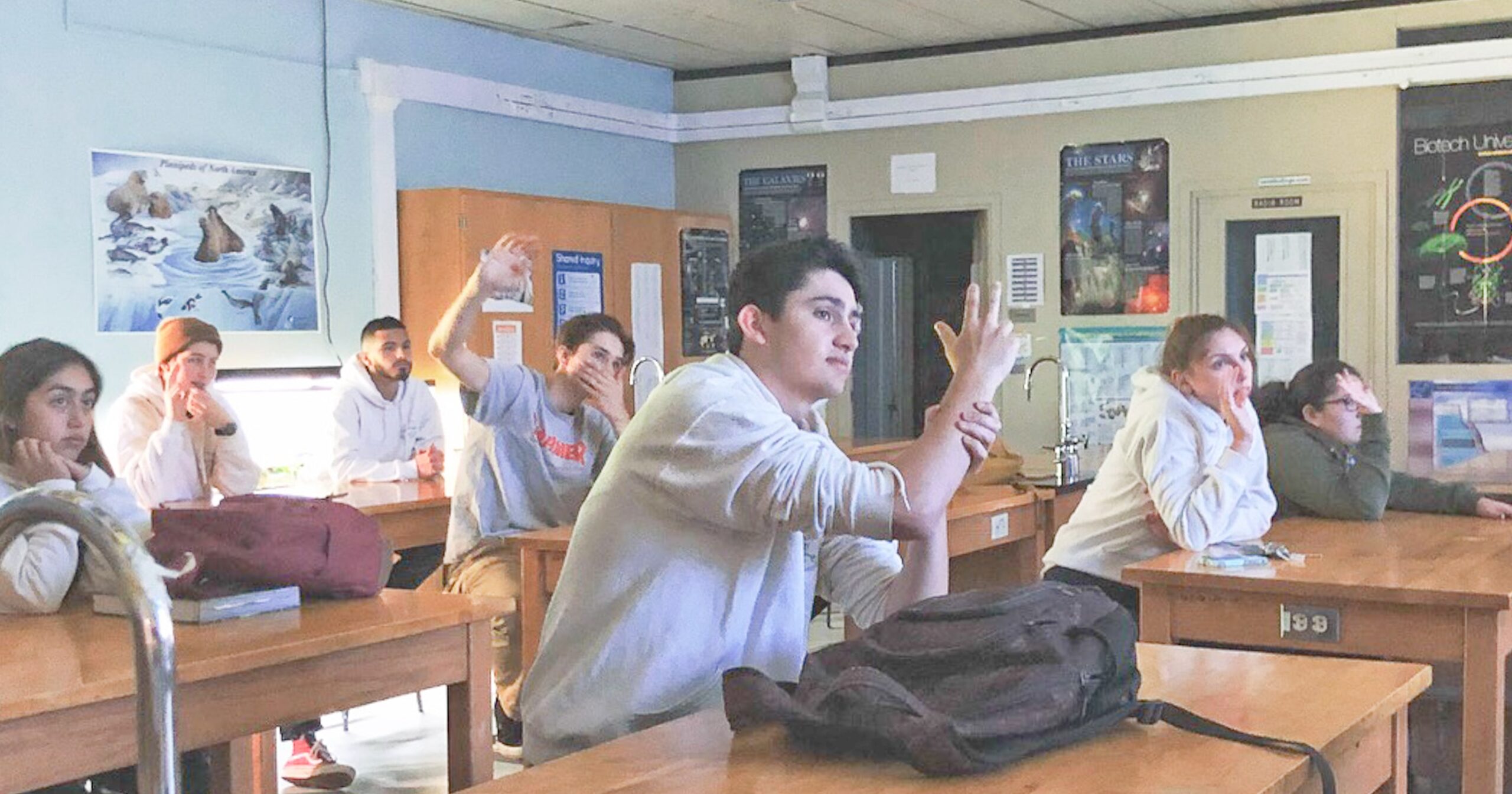The Gulf of Maine is warming faster than 99% of the oceans on the planet. Scientists are working hard just to discover what is currently happening, based on events that were set in motion years ago. And marine ecosystems are still rapidly changing, only to deliver impacts we won’t really know for several years.
These dynamic changes directly impact the seafood our coastal communities depend on. Cod stocks are down, lobster stocks are up, but slowly shifting, and there haven’t been any Northern Shrimp for several years. Climate change’s impacts are complex, and we still have much to learn how they affect seafood.
So let’s shine a light on that complexity.
High school students dive into some of the science behind the many oceanic changes happening now: sea surface temperature spikes, ocean acidification, predator-prey relationships, oceanic current shifts. All of these topics come to life in roundtable discussions, hands-on demonstrations and informative slide presentations during a visit from One Fish Foundation.


The Gulf of Maine is warming faster than 99% of the oceans on the planet. Scientists are working hard just to discover what is currently happening, based on events that were set in motion years ago. And marine ecosystems are still rapidly changing, only to deliver impacts we won’t really know for several years.
These dynamic changes directly impact the seafood our coastal communities depend on. Cod stocks are down, lobster stocks are up, but slowly shifting, and there haven’t been any Northern Shrimp for several years. Climate change’s impacts are complex, and we still have much to learn how they affect seafood.
So let’s shine a light on that complexity.
High school students dive into some of the science behind the many oceanic changes happening now: sea surface temperature spikes, ocean acidification, predator-prey relationships, oceanic current shifts. All of these topics come to life in roundtable discussions, hands-on demonstrations and informative slide presentations during a visit from One Fish Foundation.
Objective
One Fish Foundation will immerse students in engaged discussions about how the Gulf of Maine is changing and the impact on everything from kelp to lobsters. A classroom visit will enable students to dive into such issues as:
-
Sea surface temperature change;
-
Ocean acidification;
-
Current change;
-
Salinity change;
-
The complexity of how these factors may work together to affect marine ecosystems and individual species;
-
Predator-prey relationships;
-
Invasive species;
-
Reproduction;
-
Economics
-
Policy
Results
Students will leave with a better understanding of:
-
How some local species are affected by climate change;
-
Current research on how these factors affect seafood production;
-
The broader questions of where more research is needed;
-
An understanding of their relationship to the seafood they eat;
-
Questions to ask at restaurants and grocery stores.

Through a mix of slides and hands-on discussions with live green crabs and perhaps a dead black seabass, students will see the challenge scientists now face in trying to get ahead of climate change. They’ll also learn that for now, this is not a problem we will solve, as much as one we will learn to adapt to.
One Fish Foundation will work with you to customize a lesson plan to tailor content to meet students where they are in your curriculum. Students leave feeling empowered knowing their decisions make a difference. They also leave with a challenge: If they are interested in marine science, we need their help.
“Colles did a great job engaging the students and involving them in the conversation around sustainable seafood choices. Students commented that his presentation was “eye-opening” and caused them to think about the seafood choices they make, whether at the grocery store or their favorite sushi restaurant. They especially loved the “hands-on” aspect of his presentation, getting familiar with local crabs. Highly recommend!”

